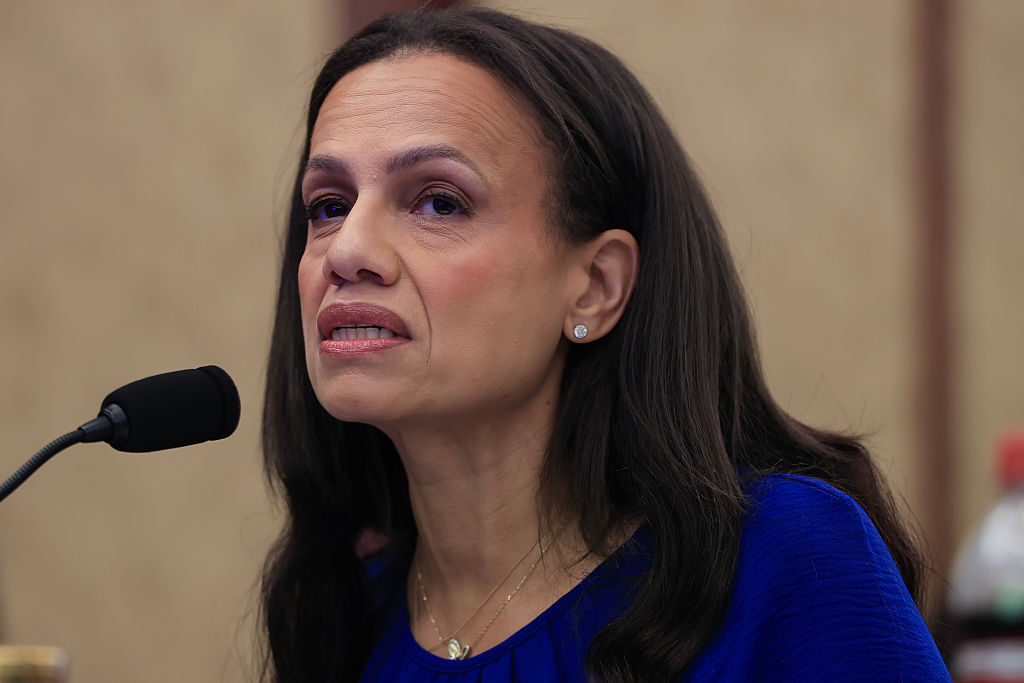If a midterm is a referendum on a presidency, it is one that presidents usually lose, especially Republican presidents. Since the Civil War, the president’s party has gained seats one only three occasions: 1934, 1998 and 2002. Only on the last of those was recipient of the public’s inexplicable affection was a Republican president, in this case George W. Bush. And in that instance the public’s affection was explicable in the aftermath of the 9/11 attacks.
So yes, Republican losses tonight will constitute a diminution of Donald Trump’s presidency. The question is not one of nature but of degree. Will the diminution resemble a mild paddling of the kind that a pornographic actress might perform on the presidential backside with a rolled-up magazine? Or will it be a public humiliation of the kind that involves comparison of his manhood to a mushroom?
In the Congressional races, the big numbers are 23, the net number of seats the Democrats need to flip the House; and 27, the average number of House seats that the incumbent president’s party has lost in midterms since the Great Depression. On Tuesday afternoon, CBS claimed that Steve Stivers, chairman of the National Republican Congressional Committee, had warned the White House that the Republicans might lose ‘17 to 21’ seats. In the mushroom-headed math of the midterm, those defeats would amount to a stunning Republican victory.
In the Senate, the numbers are 10, the number of seats in states that Trump carried in the 2016 presidential election, and which Democrats must retain now; and 4, the number of seats that you get if you add the number of seats Nate Silver thinks are ‘toss-ups’ to the number that he thinks will ‘lean right.’ The Democrats may pick up a tosser here and a leaner there, but they may well shed votes in Trumpland. Even these days, when polls come perforated and quilted for extra softness, it’s hard to imagine that the Republicans will lose the Senate. But not impossible to imagine, hence Trump’s campaign stops in recent days.
The big news as the polls closed this evening was that Donald Trump is the most divisive president since Barack Obama, and that he has used his divisiveness to divide the voters. In fact, Trump is so divisive that the networks couldn’t agree on who he was dividing. CNN reported that 26 percent of voters were turning out in order to support Trump, and 39 percent were voting in order to oppose him. But Fox reported a narrower balance: 32 percent supporting Trump and 34 percent opposing.
Still, CNN and Fox agreed that a third of voters, 33 and 34 percent respectively, told the pollsters that Trump was ‘not a factor’ in their decision to vote. This is heartening. It suggests that a third of voters were determined to do their democratic duty with a dignity that those running for office frequently forget, and that they have no intention of discussing their private thoughts with the media. Also heartening was the early voting turnout. According to the US Elections Project at the University of Florida, if early voters constitute the usual third of total voters, then today’s turnout would be 48.5 percent, the highest since 1914. Who would have thought that populism would be so good for democracy?
Will it be a big blue wave, or a ripple that only stains the president’s crocodile-skin loafers and sink him an inch or two into the sands of Mar-a-Lago? Only a complete idiot would try to predict tonight’s results at eight in the evening. So let me oblige. My guess is that the Republicans will carry the Senate 52-48, with Mike Braun defeating Joe Donnelly in Indiana, despite Nate Silver’s prediction of the opposite outcome. The Democrats will flip the House with net gains of between 30 and 35 seats. Trump will blame these losses on George Soros and the Mexicans.
Having given my hostages to fortune, I can now go to bed. It’s been a long campaign, and I need all the rest I can get. Because if I’m right, then the House Democrats will call for Trump’s impeachment, and the lunacy of the last couple of years will seem like nothing compared to what’s about to happen.
Dominic Green is Life & Arts Editor of Spectator USA.

























